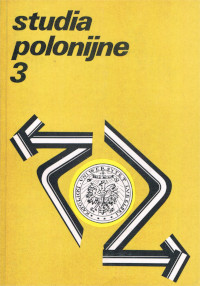Legal Status of Polish Missionary Enterprises Abroad
Main Article Content
Abstract
- The practice of special pastoral care of migrants dates back to the 8th century, while the appropriate legislation had been created since the Fourth Lateran Council (1215), the resolutions of which were included in the Code of Canon Law (Canon 216, section 4). It was, however, only an Apostolic Constitution Exsul familia (1952) that defined the entire legal organization and actual principles of ministering to migrants. Bishops’ duties, in this particular field were accentuated by the Second Vatican Council and the post-Council legislation.
At the foundation of pastoral care of migrants which constitutes a regular church institution are the doctrine, ecclesiastical law and elements of natural law. Aware of this the Church respects and defends ethnic values, the native tongue of migrants in particular and tends to provide them with pastoral care of their own priests.
II To avoid conflict between the migrants and the local communities the legislator determines the principles whereby missionary enterprises function and are managed. Such enterprises ought to be closely associated with dioceses in the country of immigration, maintaining at the same time spiritual links with the Church in the country of emigration. Pastoral care should combine the principle of unity with the specific ethnic needs, or individual character of actual ministering. The enterprises themselves are per se temporary, though actually fairly stable. They ought to protect migrants against rapid assimilation, permitting at the same time their natural integration.
III Groups of Polish migrants constitute church communities organized, according to the country, in form of the personal parish, pastoral mission (missio cum cura animarum), ordinary mission (missio sine cura animarum), vicariate, territorial-ethnic mission and others. In those places where special pastoral care of migrants is lacking, the local parish priest ought to minister to them.

